- Home
- Madeleine L'engle
The Rock That Is Higher Page 5
The Rock That Is Higher Read online
Page 5
But there was another mistake, and that was the choice of the first king, King Saul. Saul, who was tall and handsome and a mighty warrior and so strong that he took a pair of oxen, and cut them into pieces single-handedly. He was, it would seem, a logical choice for the king. Saul was taller than anybody else and comely. He is referred to as a son of Kish, the Ethiopian, so it is likely that Saul was dark of skin and that he glowed in the fierce desert sun. Samuel anointed him and there was great rejoicing, and Saul smote the Amalekites and had a great victory.
Though Saul was told to “totally destroy everything that belongs to them. Do not spare them,” Saul spared Agag, the king of the Amalekites, and the best of the animals. Everybody else he slaughtered—women, children, old people, animals. All pretty bloody, isn’t it? But we’re pretty bloody, too, with our bombings and burnings in Central America, in Korea, in Vietnam—and that’s only a small part of the list. But were we told to destroy everybody and spare them not? I don’t think so. War is always confusing. A twelve-year-old wrote to me, asking, “We’re studying the Crusades in school. Can there be such a thing as a holy war? Is it ever right to kill?”
Is it? What does this do to the family of God’s human creatures? I graduated from college into the Second World War, and that was not an ambiguous war; Hitler had to be stopped. But what about all those bombs dropped on Germany? On hospitals? On women and children who had nothing to do with the war? Was all that necessary for the winning of the war? That’s one of many questions for which I have no answer. Sometimes we are in situations where there is no right choice, and we have to make the choice which we prayerfully believe to be the least wrong, never forgetting that it is wrong.
Should Saul have killed everybody? Was it necessary? Was it really God’s command? Because Saul had saved Agag neither Samuel nor the Lord had anything to do with Saul ever again. And here we come to one of these odd scriptural quandaries. All the Amalekites have been slain. Saul slew all of them except Agag, and Samuel slew Agag (And Samuel put Agag to death before the LORD at Gilgal), so therefore there were no more Amalekites. Finis. Kaput. But in the first chapter of the Second Book of Samuel, we read, when David returned from defeating the Amalekites, it was an Amalekite who told David of the death of Saul, that he, the Amalekite stood over him and killed him. Where did this Amalekite come from? Where did the other Amalekites come from if they were all slain by Saul and Samuel? This is not the first—or the last—time we find differences in Scripture, and this does not mean that Scripture is errant, or untrue, or false. The history in the Old Testament was compiled by more than one scribe, and what we are given is a general picture, and if we put it all together it adds up to a true picture, despite the inaccuracies. God is interested in truth, and that is what this book is about, our human struggle to understand and accept that truth that Jesus promised would make us free.
* * *
—
Saul had
spared Agag and the best of the sheep and cattle, the fat calves and lambs—everything that was good. These they were unwilling to destroy completely, but everything that was despised and weak they totally destroyed. Then the word of the LORD came to Samuel: “I am grieved that I have made Saul king, because he has turned away from me and has not carried out my instructions.”
Nik, the playwright in my novel, asks the rough question, “Was it God who made a mistake in choosing Saul to be the first king? Or was it Samuel? Was Samuel blaming his own mistake on God?” As one character, David’s sister, Zeruiah, proclaims, “God does not make mistakes. We make mistakes. God does not.”
What are we to make of this? Do we agree with Zeruiah that God does not make mistakes? And is it all right for us to ask such questions? Dare we question Scripture? Dare we question God?
Yes! All through Scripture God’s great protagonists are full of questions, complaints, even whinings.
Why are you doing this to me? How long, Lord? Keep not silence, O God! Wilt thou be angry with us forever? Wilt thou not revive us again? Lord, why hidest thou thy face from me? I have cried day and night before thee!
Do we dare less than God’s people in Scripture? What has happened to us? Don’t we trust the Lord enough to tell our Maker how we really feel?
We are finite, and the Lord is infinite. We cannot comprehend the Creator any more than the darkness can comprehend the light, as the KJV reads in the beginning of John’s Gospel. We can complain, and we can also worship and adore. We can fall flat on our faces at the wonder of God’s loving revelations to us. We can learn what our merciful Abba is like through Jesus, the Incarnate One. But we cannot know with our minds alone the mind of God. We can try to understand with our hearts, and sometimes that understanding comes when we are brave enough to ask questions.
Did the Lord make a mistake in choosing Saul to be the first king, or was it a human mistake, Samuel’s mistake? What does it mean?
What does a truck driver running through a red light on a sunny Sunday in San Diego mean to me? What does God want me to learn from this experience?
Life is full of questions, and we are free to ask them, to understand, occasionally, that we are not going to get an answer, or at least not the answer we expect, and then we are called to move on. But I believe that God encourages us to ask questions.
* * *
—
In the hospital in San Diego I didn’t ask questions—not because I didn’t have any but because whatever energy I had was spent on getting through each day and night. Trying to breathe without hurting. Trying to move without hurting. Trying to eat.
Once I was off IVs the doctors wanted me to eat in order to regain strength. If I had had a doctor other than the trauma team would this have happened? Trying to force me to eat was where the doctors made a big mistake. I was put on a full, regular diet, and there was no way my lacerated internal organs were ready for that. During my surgery my intestines had been examined inch by inch to see where and if and how they were torn or bleeding, and intestines don’t enjoy being pulled out and gone over. My kidney, which had been so badly injured it almost had to be removed, was learning to function normally again. My body was not ready for food, and the more I tried to eat, because I was told I must eat to get back my strength, the less ready it was. So my ileum simply shut down. What I ate I threw up; I could not take a pain pill without heaving painfully.
Part of the insistence by the trauma team that I must eat in order to regain strength came from the pressure of the insurance company. Members of the team came to my room to warn me that the insurance company was reluctant for me to stay in the hospital any longer. I looked at them. It was visibly apparent that I was not ready to leave the hospital. But the insurance people were treating me as a simple splenectomy, without any consideration for all the other injuries, the torn vital organs, the grossly black and blue left side, bumpy with hematomas, the black and blue legs, the bruised sternum that made breathing a painful effort.
Eat. You must get strong. Eat.
Around me the hospital was being rebuilt to make it earthquake safe. Not a comfortable thought. Were they going to finish their construction before the next earthquake? The noise was exacerbating. So I let myself be pushed out of the hospital, and Deborah graciously came for me, telling me later that she knew I was being released too soon. She was going to be in her beautiful home only overnight; she had to leave early the next morning for a business trip, leaving me to the ministrations of a maid and a gardener, for whose gentle care I will always be grateful. Darlene tried to fix soft foods for me, hoping I would be able to eat; Victor was simply there, ready. And I continued to throw up whatever I put in my mouth and made myself swallow.
The second morning I got through on the phone to the doctor who had performed the surgery, and who told me to come back to the hospital through the emergency room. After four hours of tests I was re-admitted. But the episode was definitely a setback, and
I blame the insurance company far more than I do the doctors. Why should doctors be terrorized by insurance companies who have no medical training or knowledge? What right do insurance executives have to make medical decisions?
Not long after this my physician friend, Pat, read an article in the Journal of the American Medical Association about what happens to the body after severe trauma. Doctors have not understood why, for instance, someone who has had a bad case of flu, and recovers, is not well, does not gain weight. They are now learning that the body goes through its own timetable of healing. No matter how much hyper-alimentation is given, a patient will go on losing weight until the body completes its process in its own time. Pushing me to eat was not a good idea, and it slowed down my recuperation. When I was out of the hospital and could eat what my body would tolerate—soup, soft foods—I did better. It was nearly six weeks before the body was ready for real food once more. In fact, until then, food did not taste like food. It was just something I managed to swallow without heaving it right back up, food I normally don’t go near—ice cream and Fritos, for instance!
Eating has always been important to me, because the focal point of the day is the dinner table, a foretaste of the heavenly banquet. The dinner hour is a sacramental time for me, a time of gratitude for whoever is gathered around the table, for the food, for our being part of the great story of Creation. We share the day’s events, tell stories, look up words in dictionaries, linger long after the meal is over while the candles burn down.
The family dinner table is no longer something to be taken for granted. In some families it doesn’t even exist. People eat catch-as-catch-can, with various conflicting schedules, grabbing a bite, watching TV, running off, missing the wonderful time of communication. It is a great loss. Often during my marriage Hugh and I had to work hard to keep the tradition, eating at odd hours just so that we could get everybody together, but the effort is worth it, it is worth it. I know one family who eats breakfast together; it is their chief gathering time. For me the shared evening meal is the time for gathering together, the time when meaning is made clear—the value and validity of our lives. There have been times of trouble when the dinner table has been the only affirmation available.
And I like an expandable dinner table. I remember my son asking, “Mother, is it all right if I bring nineteen people home for dinner?” And I said, “Of course, as long as you do the dishes.” I’ll cook for any number, but I don’t do the cleanup. Probably the largest group has been fifty—fifty young Christian artists in New York who came at the time of Hugh’s and my thirty-fifth wedding anniversary to listen to us talk about marriage between two artists. My granddaughters often invite twenty or so people, outgrowing the table, but not the living room and dining room, which open into each other. And this is family, all these disparate people gathered together. We are not always of one mind, theologically, politically, artistically, but seldom so far apart that conversation is not possible. Good arguments, with passion but not rancor, are part of a good evening.
Sometimes we are careful to have a group small enough to sit comfortably at the table, and then we may spend the evening reading and talking about poetry, our own poems, or poems which have particular meaning for us. Sometimes we will be all women, and will talk about what being a woman means to each one of us and what we have learned from each other.
For the Christian, the Trinity is the true metaphor for family, but in the churches nowadays we seem to be skipping over the Trinity, or dispensing with it altogether, and this may be because we are also skipping over and dispensing with family, forgetting the joys of unity in diversity.
A metaphor of unity in diversity is the world of the theatre, where I was always a very small part of the making of a play. But, as Stanislavski reminds us, “There are no small parts; there are only small actors,” and I rejoiced in being a part of this Oneness. No one was expendable; everyone was needed to make the play work. Another metaphor is the orchestra, where the lowly tuba may be as important as the first violin. All the instruments have to play together to make unity, a symphony, a concerto, or an orchestral suite.
Of course one problem with the Trinity today is language—either the old, paternalistic language, or the newer, supposedly inclusive language. Father, Son, and Holy Spirit does seem to lean heavily to the masculine side, even when one thinks of the Holy Spirit as feminine.
And let’s not get too literal about this—that’s always a terrible problem. If the Holy Spirit is feminine, and Mary conceives by the Holy Spirit, what does that imply? Literalism, that’s all. Some of my clergy friends say God the Redeemer, Creator, and Holy Spirit, and that’s not bad; it is at least trying to return to the concept of the Trinity in Unity, in oneness, as the prototype of family. We are all trinitarian, inseparably body, mind, and spirit, and this oneness within ourselves helps us to understand oneness in our relations with our families and friends even when we are scattered across the continent and sometimes across the face of the earth. Usually the phone serves to some extent to keep the lines open between us, but the old geographical closeness has been broken. So the families of our churches, our friends, become even more important.
In Meet the Austins the family is shattered and shocked by the violent and sudden death of a beloved uncle, and they did what my family and I often did in times of trouble—they went up to the top of Hawk Mountain to look at the stars and try to get things in perspective.
The story is told from the point of view of Vicky Austin (and Vicky, rather than the mother, is the character I identify with) who says,
The sky was enormous, and terribly high. It’s a funny thing, the colder it gets, the farther away the sky seems and the farther off the stars look. The sky was so thick with them it was almost as though it had been snowing stars, and down below us there was a white fog so it seemed as though we were looking out over a great lake. The Milky Way was a river of light….
Mother said, “I know you’re very upset about Uncle Hal and Maggy’s father. We all are. I thought maybe if we came and looked at the stars it would help us to talk about it a little.”
Just then a shooting star flashed across the sky, and John said, “There’s a shooting star and I don’t know what to wish. I want to wish it back to before yesterday and that none of this would have happened, but I know it wouldn’t work.”
I said, “Mother, I don’t understand it,” and I began to shiver.
Mother said, “Sometimes it’s very hard to see the hand of God instead of the blind finger of chance. That’s why I wanted to come out where we could see the stars.”
“I talked to Aunt Elena [Uncle Hal’s wife] for a while,” John said….“She said that she and Uncle Hal knew that they were living on borrowed time. They’d always hoped it would be longer than it was, but the way their lives were, they only lived together in snatches, anyhow. And she said she was grateful for every moment she’d ever had with him and, even if it was all over, she wouldn’t trade places with anybody in the world.”
“She said that to you, John?” Mother asked.
“Yes,” John said, and then another star shot across the sky, this time with a shower of sparks. We sat there, close, close, and it was as though we could feel the love we had for one another moving through our bodies as we sat there, moving from me to Mother, from Mother to John, and back again. I could feel the love filling me, love for Mother and John, and for Daddy and Suzy and Rob, too. And I prayed, “Oh, God, keep us together, please keep us together, please keep us safe and well and together.”
It was as though our thoughts were traveling to one another, too, because John said, “Oh, Mother, why do things have to change and be different?” He sounded quite violent. “I like us exactly the way we are, our family. Why do people have to die, and people grow up and get married, and everybody grow away from each other? I wish we could just go on being exactly the way we are.”
&nbs
p; “But we can’t,” Mother said. “We can’t stop the road of time. We have to keep on going. And growing up is all part of it, the exciting and wonderful business of being alive. We can’t understand it, any of us, any more than we can understand why Uncle Hal and Maggy’s father had to die. But being alive is a gift, the most wonderful and exciting gift in the world. And there’ll undoubtedly be many other moments when you’ll feel this same way, John, when you’re grown up and have children of your own.”
Yes, and when you have grandchildren. I am coming to the time when my granddaughters will be finishing their education and will leave and move on, and that is right and fitting, and I have to trust that as God provided family for me after my husband died, so family will continue to be provided.
For that is how it is, a great and moving pattern, a cosmic dance of the whole Created Order, of which each of us is a part. The patterns change, the steps of the dance vary, but it is still the metaphor of Great Family, to which we all belong.
3
STORY AS AFFIRMATION OF GOD’S LOVE
San Diego was far, far from home, and I was lonely. For a while after the accident I was so enclosed in a cocoon of pain I didn’t realize how lonely I was. When I could think, I remembered that I had a friend in San Diego, Lura Jane Geiger, whose small publishing house, LuraMedia, does fine books and tapes. But I didn’t have Lura’s number. When I was finally able to get hold of her, she came right to the hospital, despite the fact that she was carrying a double burden of grief, the death of her husband, and of her son and partner. She brought with her a quiet book of meditations on life in the desert and read to me in her peaceful voice. She told me, firmly, that I should not be alone.
I knew that I should not be alone, knew it deep in my heart and deep in my gut. But my deep-seated Anglican training had told me that I should not ask for help, that I should be brave about being alone. I am eternally grateful to Lura for stating so unequivocally that I should not be alone.

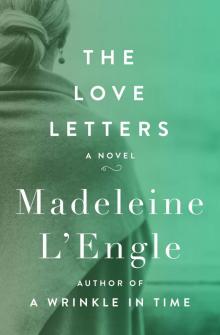 Love Letters
Love Letters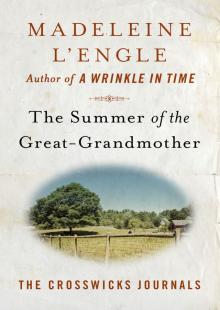 The Summer of the Great-Grandmother
The Summer of the Great-Grandmother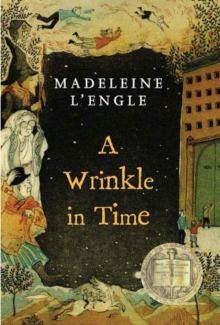 A Wrinkle in Time
A Wrinkle in Time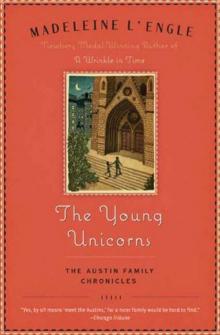 The Young Unicorns
The Young Unicorns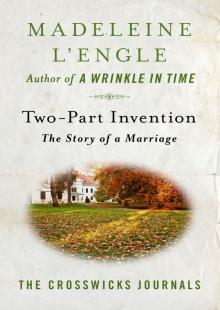 Two-Part Invention: The Story of a Marriage
Two-Part Invention: The Story of a Marriage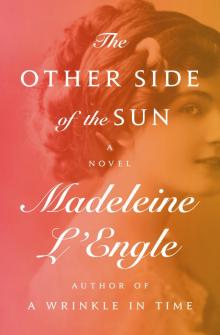 The Other Side of the Sun
The Other Side of the Sun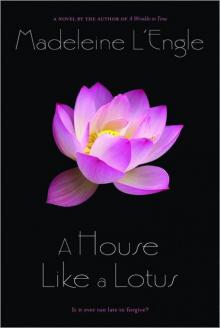 A House Like a Lotus
A House Like a Lotus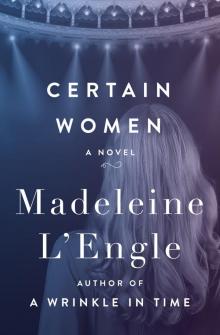 Certain Women
Certain Women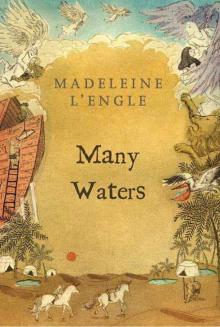 Many Waters
Many Waters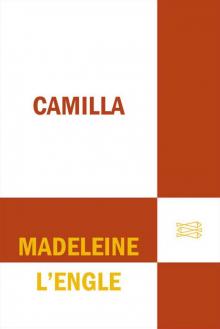 Camilla
Camilla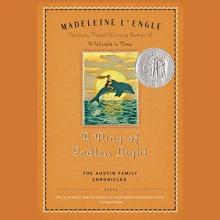 A Ring of Endless Light
A Ring of Endless Light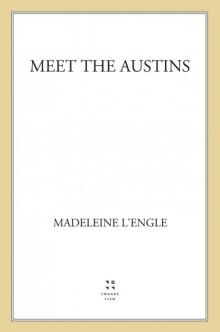 Meet the Austins
Meet the Austins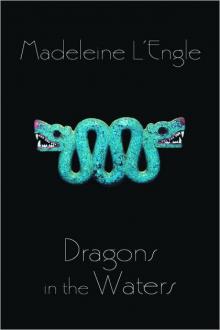 Dragons in the Waters
Dragons in the Waters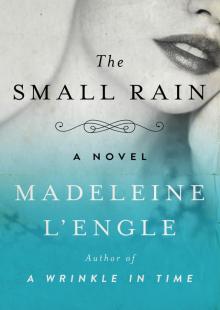 The Small Rain
The Small Rain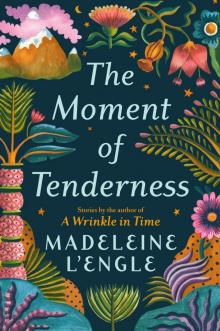 The Moment of Tenderness
The Moment of Tenderness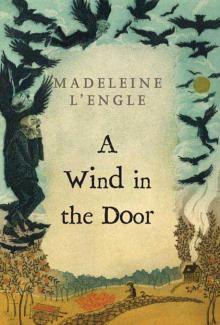 A Wind in the Door
A Wind in the Door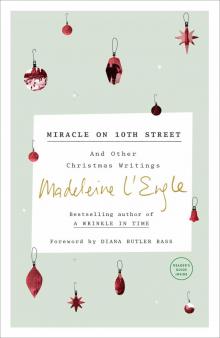 Miracle on 10th Street
Miracle on 10th Street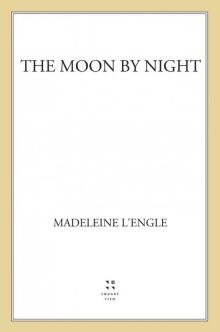 The Moon by Night
The Moon by Night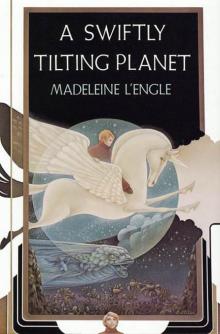 A Swiftly Tilting Planet
A Swiftly Tilting Planet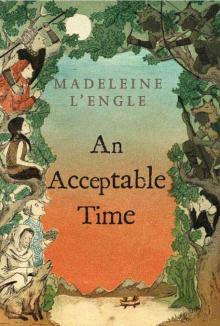 An Acceptable Time
An Acceptable Time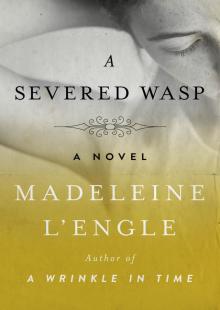 A Severed Wasp
A Severed Wasp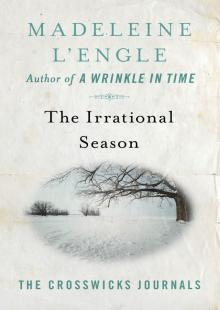 The Irrational Season
The Irrational Season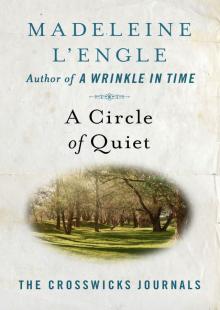 A Circle of Quiet
A Circle of Quiet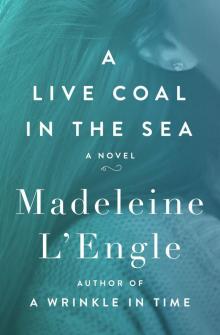 A Live Coal in the Sea
A Live Coal in the Sea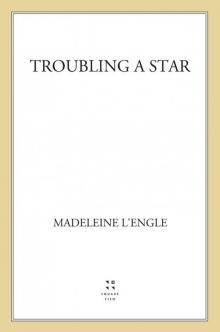 Troubling a Star
Troubling a Star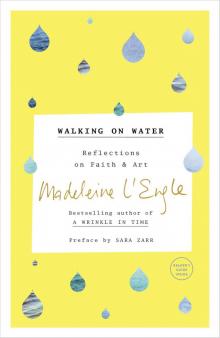 Walking on Water: Reflections on Faith and Art
Walking on Water: Reflections on Faith and Art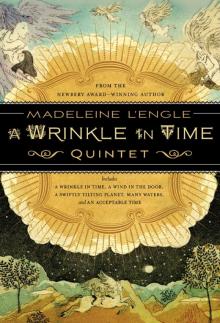 A Wrinkle in Time Quintet
A Wrinkle in Time Quintet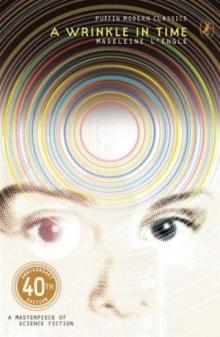 Wrinkle in Time
Wrinkle in Time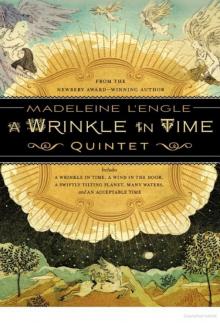 The Wrinkle in Time Quintet
The Wrinkle in Time Quintet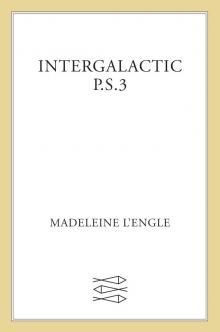 Intergalactic P.S. 3
Intergalactic P.S. 3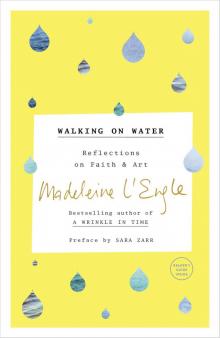 Walking on Water
Walking on Water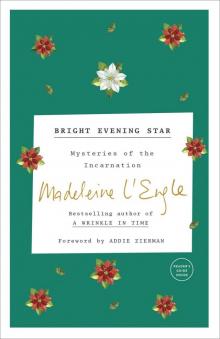 Bright Evening Star
Bright Evening Star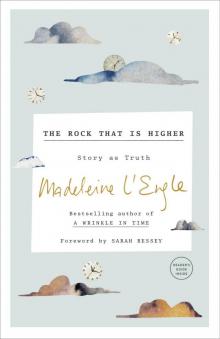 The Rock That Is Higher
The Rock That Is Higher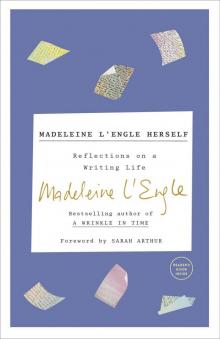 Madeleine L'Engle Herself
Madeleine L'Engle Herself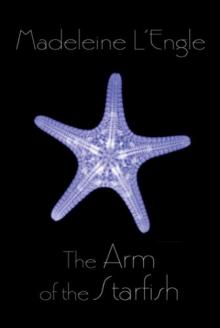 The Arm of the Starfish
The Arm of the Starfish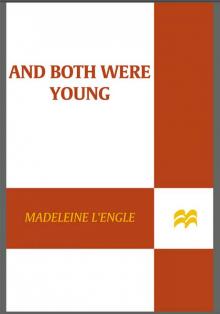 And Both Were Young
And Both Were Young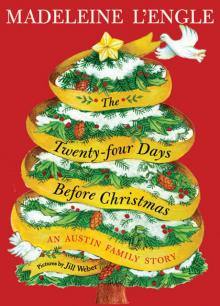 The Twenty-four Days Before Christmas
The Twenty-four Days Before Christmas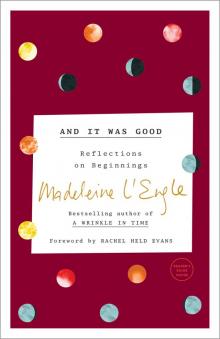 And It Was Good
And It Was Good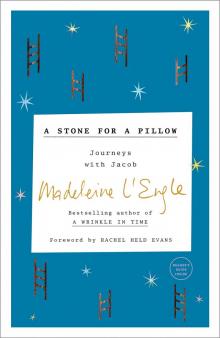 A Stone for a Pillow
A Stone for a Pillow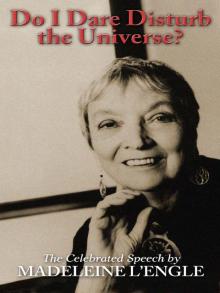 Do I Dare Disturb the Universe?
Do I Dare Disturb the Universe?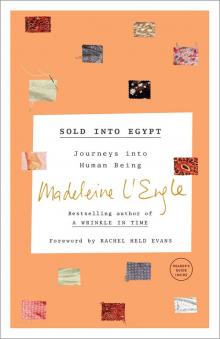 Sold into Egypt
Sold into Egypt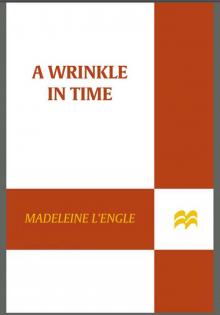 A Wrinkle in Time (Madeleine L'Engle's Time Quintet)
A Wrinkle in Time (Madeleine L'Engle's Time Quintet)